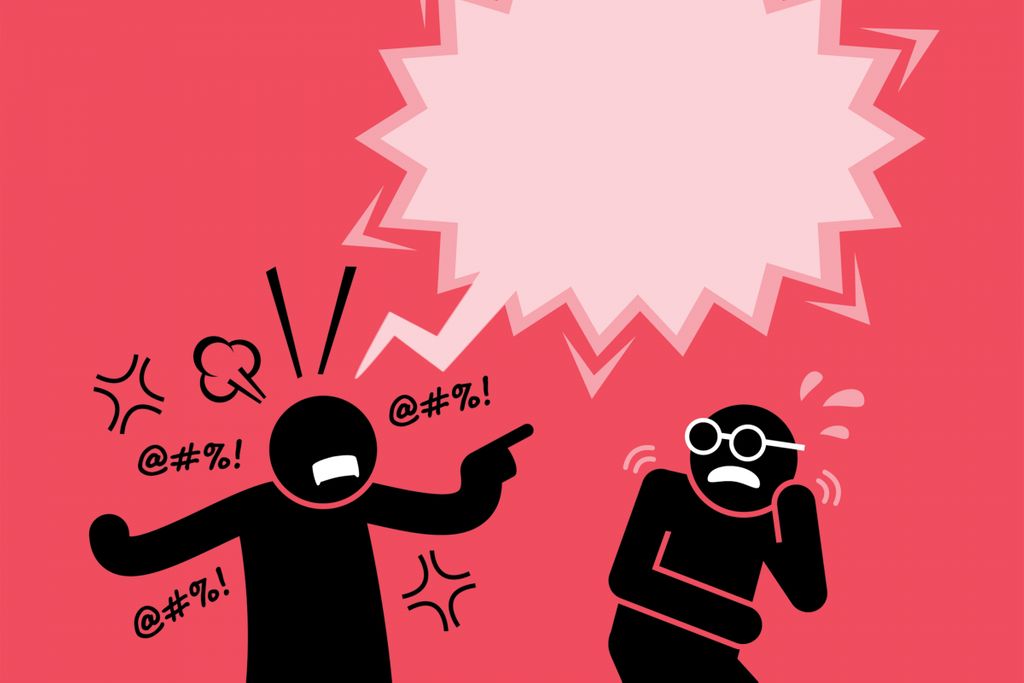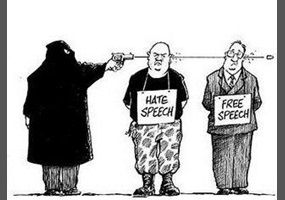Does Freedom Of Speech Give People The Right To Use Hate Speech?
Sep 11, 2019 • 290 views

Once upon a time, during medieval and colonial India, speech was highly regulated. In the times of maharajas or shahenshah and lords or sirs, uttering anything against the kingdom (ruler, as per say) or the government, would cost an individual its life. Violence, mostly physical torture, was chosen as the means to counter the problem of rebels who expressed their anger and disappointment in the government through protests - verbal or physical. Opinions, thus, had no place in the society. Individuals were not citizens but mere subjects or even slaves who did not possessed the right to form viewpoints and opinions. One had to follow the commands like a puppet. Expression in the form of writing or painting was also not tolerated. There were instances of guilliotioning or massacring people because of their works and creation or merely for speaking the truth.
The need for an equal access to speech and expression for all was identified and post independence, the constitution makers decided to include the right to freedom of speech and frame opinions and freedom of expression and constituted it under the crucial category of fundamental rights under article 19. But indeed, the right was formulated with certain restrictions (applicable even today), in the form of not using speech or expression directed towards attacking someone's dignity, morality, or physical framework or mental well being etc. In short, freedom of speech refers to granting freedom to all individuals of the land but not allowing people to comment or use toxic language targeting an individual's religion, community, caste, position, status, physical outlook, mental well being etc. However, despite clarity in the constitution itself, time and again, there have been debates spurring around the question of usage of free speech and the need to uplift all legal barriers applied over the notion of free speech. But the question is, that even after a clear indication of manner of using the speech, after lawful limitations and freedom on speech (based on grounds of humanity and morality), what is the free speech that people are urging to seek and what kind of hatred do individual citizens are possessing within themselves? Why are we, as humans, so eager to target our fellow citizens and throw a ball of hatred and anti-moral sentiments onto them? For generating answers to these questions, it is essential to first understand the notion of free speech and hate speech.

FREE SPEECH AND HATE SPEECH
Free speech has a bit of a questionable and perhaps, a bit complicated framework in the contemporary society. The question of how much freedom is too much freedom sprawls around us in all forms. Instances of hate speech or beating/killing/lynching innocent individuals for expressing themselves is turning as a common thing of the contemporary, so called modern and progressive society.
Free speech, as the phrase itself suggests, is the medium to utilise your power in terms of verbal speech or expression. By expression, one means the use of written scripts, books, essays, articles or paintings or even plays and theatre dramas etc. It is reflected as an essential element of our everyday lives. However, the involvement of hate speech hinders this normal routine livelihood of the individuals.
Hate speech is an open expression of prejudice. It is not only irritating but also harmful for the personality and well being of an individual or a community. Hate speech is basically making use of certain words and ideas that, by their very utterance, are able to inflict injury or tend to invite on an immediate breach of peace. It refers to a speech or an expression that offends, threats or insults groups, based on their colour, race, gender, religion, national origin, sexual orientation, disability or other traits.
Despite being mentioned in the clause relating to speech itself, that freedom of expression and speech is accompanied by restrictions of not causing any harm to the dignity or character of the individual, people tend to use false words against a particular individual or community or religion. The traditional maxim of "sticks and stones can break my bones, but words can never harm me" is turning out as a source of hoax comfort. The condition today, is that, a person for once, can protect himself from physical harm but the kind of harm he/she will receive from harsh words is a harm which is not only inconceivable but also perennial. This is because, when speech is left unregulated, words hit more sharply, than a spear, piercing straight through the heart and gets imprinted in the mind of the victim.
For instance, a family with a pugnacious atmosphere will have a severe effect on the upbringing and personality of children. The use of abusive or tormenting language by adults will have a negative impact on the growth of young children as they will learn what they are shown. Consequently, this will emboss out a generation which is not just pessimistic but also obstructive, cynical, uncooperative, fatal, hostile and bellicose. Similarly, a person with dark complexion, if commented upon his/ her skin, then this racist speech not only demoralises the person but impel him to either ostracize himself from the social gatherings or, at worst, commit suicide. Targeting women and feminity and portraying women as puny and feeble is also a type of hate speech, used very subtly, which not just hails patriarchy but also spread the message of treating women with great disrespect and shatter her moral. Recently, the trend in politics is to comment on the norms, rituals and people of a particular religion. Leaders asking Hindus to reproduce more kids to show their strength and outstrip the Muslims or vice versa is a direct attack towards the religious community, making them a feel of outnumbered and aliens on their own land and generating a sense of agitation and malevolence in their minds. Eve teasing of women or men and calling them out using obscene terms like 'item', 'bomb', etc. even after ceaseless objection or commenting upon the body figure, shape or size of a woman or calling women as 'subordinate of men' or 'maids of men' or making obscene and sexual gestures towards an individual are all different instances of insulting speech which we all observe in our everyday lives and even have experienced them too. Hate speech is not just disgusting but also blameworthy for generating distress and aversion amongst the individuals. Overlooking the talent of an individual on the basis of skin colour, gender, physique or disability is also a reflection of hatred towards a particular race, gender or disability.
Thus, hate speech is an umbrella term, that encompasses offensive speech, threatening speech or insulting speech. The idea of freedom of speech, though, represents the basic maxim that everyone is free to express themselves, but it, by no means, gives rights to individuals or any group to use insults or threats, i.e, it by all means offends and apprehends the use of hate speech. Hate speech is not only derogatory for a particular class of group or individual, it perhaps, even make democracy appears to be a deeply flawed system subject to whims and accusations of mob towards a community and is unlawful and unjust towards the victim.
Therefore, it can be concluded that by no means freedom of speech grants us the freedom to use hateful speech towards any individual, group, community or nation on the basis of caste, class ,creed, race, religion, national origin, sexual orientation, gender etc. It is a commendable and highly punishable offence. Thus, the crux is that speech should be made free to use and express but it should be limited, regulated and monitored whenever and wherever required.
source of image:- newsclick
source of image:- debate.org
